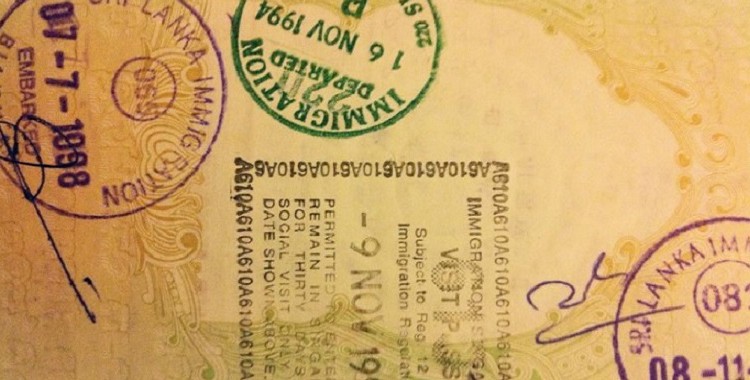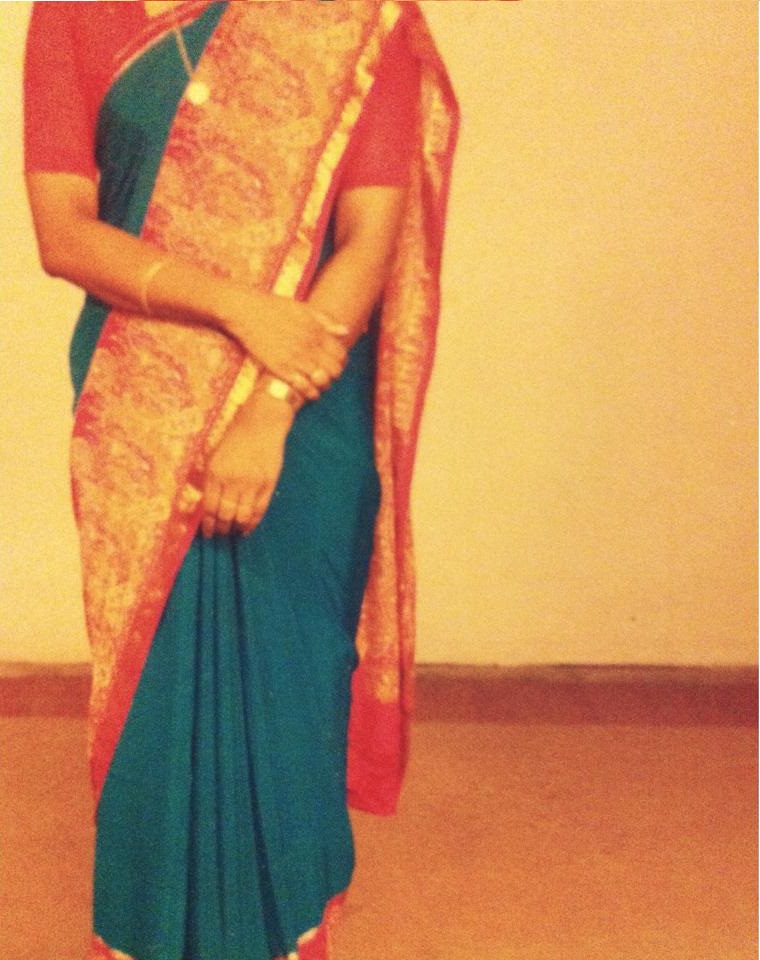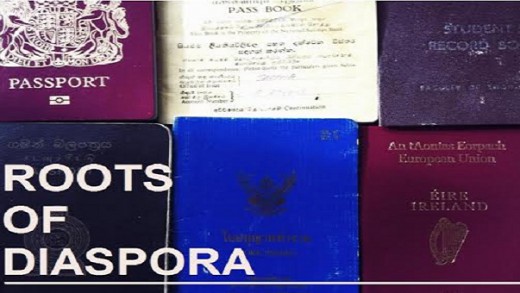Gowry was 36 years old when she left Sri Lanka. She belonged to a middle-class family from Jaffna. Members of her family started to leave the island once the “problems” there grew larger. One by one, they boarded planes and boats, to flee and leave behind their homes. Gowry’s departure in 1986 overlapped with marriage arrangements made for her by relatives abroad. The dispersal of social ties of the Tamil community inevitably led to new geographies of matrimony as well.
The young woman boarded a coach to Colombo in late 1985, where she would stay with relatives. Many of her siblings had already married and/or fled the country when the opportunity arose. Gowry was left behind waiting for her journey abroad, which would depend on her marriage being arranged by relatives who had arrived in Western Europe months before.
Like thousands of other mostly middle-class Tamils who made their way out of the country, Gowry arrived way ahead of her final departure in Colombo where, after 1976, the only international airport in the country was located. While waiting in the capital city, her cousin in Norway arranged her admission to a Norwegian Folkehøgskole (Folk High School). She received the admission letter months later in 1986, when she started arranging for her passport and her entry-visa to Norway. Her aging parents were able to cover her tuition fees, tickets costs and passport fees to leave the country.
Gowry returned to Jaffna from Colombo during spring to visit her parents one last time before departing to Oslo. She stayed in her childhood home for a week, before she boarded the coach back to Colombo. When she left the peninsula in mid-1986, she didn’t know the “troubles” there would grow larger. She hugged and kissed her mother before going to her father’s store to kiss him goodbye. She was in tears when she left for the bus stop, yet she believed it was best to leave considering “the issue”. Gowry didn’t know the war was to worsen. She didn’t know she was never to return home again. She didn’t know this would to be the last time she saw her parents.
Months before Gowry arrived in Colombo, her elder sister arrived with her family as refugees at an asylum camp in West Berlin where she met, amongst a number of mostly male Tamil refugees, a mid-aged Tamil man whose family was looking for a prospective wife for him. They became friends and a marriage proposal was sent from the asylum camp in West Berlin to Gowry in Colombo. Her parents later agreed to the proposal. Before any arrangements could be made, however, the West German asylum regime interrupted their plans. The issue of “transit visas” being linked to an influx of Tamil refugees from Sri Lanka, who used the immigration loophole between East and West Germany to reach the “First World”, was raised in the West German Parliament and led to a clamp down on Tamil asylum requests in both countries. Gowry’s sister’s family left for Denmark, where they sought asylum and lost touch with her prospective husband who was moved to another asylum camp in West Germany.
While her sister lost sight of the stranger Gowry was proposed to in a foreign land, Gowry continued to correspond with her parents in Jaffna through letters from Colombo. Her aging mother had lost the ability to read years before, so her younger sister had to write her mother’s words onto paper for her. She consumed each letter with joy and melancholy thinking of her family and when she would be able to return to them.
In September 1986, Gowry boarded a plane into the unknown. She was carrying two bags filled with saris, dresses, jeans and sweaters with her. Gowry additionally carried bags of Jaffna mixture, flour, short eats, palaharam and other bites for her cousin, who was impatiently waiting in Norway to taste a bit of home. Gowry was scared of what was going to happen, but she was also excited for what was awaiting her in her new life. The long flight was to become her first. She had to stop over in Singapore and Stockholm before landing on board a SAS machine in Oslo. Gowry wore jeans and sweater when she disembarked into Norway’s autumn.
At first, she was housed in the campus of the Folkehøgskole outside of Oslo, while she spent time studying the Norwegian language and culture. She spoke English with the Norwegians around her and slowly picked up the local language. It was difficult at first for her to get accustomed to the new surroundings and people. The climate posed one of hardest challenges for Gowry. During school vacations, she and other Tamil students worked in the catering and cleaning section of the local hospital. The money she earned helped her to cope with the everyday expenses she had.
She continued to be in touch with her parents through letters and via phone. As her family didn’t have a phone in Jaffna at the time, she would call the neighbours and tell them to inform her parents. She would hang up the phone and wait for ten minutes before calling again in the hope that her aging parents would arrive to speak to her. Gowry was homesick and wanted to return every so often. But she knew she couldn’t go back.
The war worsened with the presence of the Indian Peace Keeping Forces. Her parents and sister would pass on news in distant whispers, but most of her knowledge about the situation back home was obtained through Norwegian media. The group of Tamil students at the Folkehøgskole followed the Norwegian newspaper coverage to keep up to date with the war at home. Gowry was scared with what was happening with the Indian Army. She was scared for her relatives who were left back home. As the Tamil students’ Norwegian language skills were not sufficient enough to understand the entirety of the press coverage, they took the collection of articles to their Norwegian teachers, who translated and explained the situation to them. The students were desperate for information on the political situation and the welfare of their loved ones.
Meanwhile, 790 Km further south, in a small town on one of Denmark’s islands, Gowry’s sister received information about the whereabouts of the man who proposed to Gowry a year before. She contacted his family in Jaffna and was told that the prospective groom had left West Germany for Canada months before in 1985. Gowry’s cousin in Oslo immediately called the man’s brother in Montreal, with whom the marriage proposal between Gowry and the stranger was fixed through continents, across oceans, and over a phone line.
Follow Gowry’s full journey and more here: https://www.facebook.com/RootsofDiaspora
Roots of Diaspora is an interactive project on refugeehood and migration which aims to collect personal and family stories of flight and immigration of Tamils from Sri Lanka dating back as far as the island’s independence in 1948. The aim of this narrative and visual project is to map journeys of Tamils to provide visual understandings and contexts for migrations, as well as remember and value the travellers, refugees and migrants alike, their journeys, its borders and geographies.
For submissions, contributions and enquiries contact us under: rootsofdiaspora@gmail.com

 Sinthujan Varatharajah
Sinthujan Varatharajah







